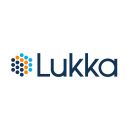From cryptocurrency to AI technology, it’s an exciting time to be in the fintech space. Like last night’s football game, the latest fintech trends not only make good water cooler chatter, but they also dictate how companies across dozens of industries do business. Not to mention, they could change how consumers like you and me do everything from manage our paycheck to pay back student loans.
We talked to four industry professionals to hear their forecast on upcoming fintech trends and how they'll be transforming everything from identity fraud to debt repayment.

Just like you would use a calculator over mental math, Ocrolus believes in using intelligent automation review over manual review for financial documents. Vice President of Engineering Zoheb Sait explains what fintech trends he’s watching to ensure their technology is up to date.
What are the top three fintech trends you're watching that are significantly impacting the industry?
Fintech companies continue to dominate AI and machine learning. Fintechs are using AI and machine learning in everything from document processing to customer authentication to risk analysis. Meanwhile, traditional financial institutions are struggling to overhaul their core processes using these technologies, giving fintechs an advantage.
Second, many traditional banks are continuing to partner with fintechs. In all, about 80 percent of banks have entered into fintech partnerships, and will continue to do so to meet market needs. Last, there is the growing sophistication of fraudsters. Whether the threats come in the form of synthetic identity fraud, loan stacking or fraudulent financial documents, there are a growing number of costly scams that fintechs must develop processes to neutralize.
Blockchain will make packaging, securing and exchanging loans more efficient.”
What under-the-radar fintech trends are you watching that the industry isn't talking about?
First, I think of the importance of human intuition. Computer vision algorithms can miss blurred characters, and AI algorithms can fail to properly classify documents. Fintechs that want to offer data of the highest integrity must address these process gaps with some sort of embedded human intervention. On the customer-facing side, fintechs must also strive to provide a human touch for service interactions.
Blockchain will reshape fintech. As blockchain enters a more mature cycle, the technology is poised to anchor fintech products. Blockchain will make packaging, securing and exchanging loans more efficient. The public ledger system will also make fintech activity more transparent.
How are these trends affecting the future of your company?
Ocrolus is an intelligent automation platform that combines all the stages of document review (classification, data extraction, data validation, and analysis) into a single solution. The platform merges AI and hyper-efficient human review into a core document processing engine that powers 99 percent accurate data capture. The fintech trends discussed above will reinforce our strategic commitment to hybrid human and machine processing models, which are the only way to build a document analysis solution that blends speed, accuracy and data completeness, along with the analytical firepower to tackle emerging challenges like document authentication.

As a fast-growing SaaS solution for cryptocurrency nuances, Lukka is all about creating efficient solutions. Director of Sales and Account Management Duke H. Kim shares what fintech trends he looks at to make business easier.
What are the top three fintech trends you're watching that are significantly impacting the industry?
From a Lukka perspective, I see more institutions entering into the cryptocurrency space because there is more regulatory clarity and tools such as ours that make crypto an investable asset class. More broadly, I see firms maturing in their expectations of what blockchains and DLT can reasonably do, right now. There was a lot of hype early on, and expectations are being reset (for the better). Beyond that, I see more companies understanding that not everything needs to be done in house; companies are really focusing on what they are best suited to build and buying everything else.
What under-the-radar fintech trends are you watching that the industry isn't talking about?
We are now a knowledge economy and competition for smart talent is fierce. So I see fintech being used in many ways. Smart contracts are really interesting as a tool, but also as a recruiting hook; who doesn’t want to work on the next new thing? Because of the competition for talent, I think the underlying trend is actually putting power in the hands of employees, empowering them to take ownership of their work culture and work-life balance.
I see more companies understanding that not everything needs to be done in house.”
How are these trends affecting the future of your company?
I think our strength as a company is that we know exactly what we can bring to the table; a platform that bridges the gap between ‘traditional’ financial operations and crypto. By building best-in-class infrastructure and tools, we allow companies to focus on their core competencies and run successful enterprises. As a startup, I think it’s great that we empower our teams to build processes and culture that both solve incredibly complex business problems and suit their lifestyle. Allowing our teams to focus on what they do best is ultimately the most beneficial to our customers, and maybe even the crypto ecosystem as a whole.

Summer’s mission is to fix the student debt crisis. By staying up to date on fintech trends, Co-Founder and Chief Operating Officer Paul Joo shares how he is helping the next generation enter the workforce without drowning in debt.
What are the top three fintech trends you're watching that are significantly impacting the industry?
I’ll start with the democratization of information. With more resources available at our fingertips than ever before, consumers have much more direct access to data and expertise that were previously the domain of a limited number of gatekeepers.
We’re also seeing a major trend of data integration as both individuals and fintech companies understand that financial service verticals do not exist in separate vacuums: debt repayment strategies should inform investment preferences, for example, and consumers increasingly expect to have a holistic view of their financial lives.
Another trend we’re watching is the deployment of software to distill key decision variables and cut through complicated processes. Software is excellent at cutting through complexity, and we’re seeing it used effectively in a growing range of creative fintech verticals.
We also believe that the next wave of fintech innovation will be rooted in increasingly autonomous finance.”
What under-the-radar fintech trends are you watching that the industry isn't talking about?
Despite the push for financial literacy, we also believe that the next wave of fintech innovation will be rooted in increasingly autonomous finance. Consumers will look to fintech innovators to understand the nuances of individual financial preferences and execute strategies in their best interests.
The relationship between growth in the freelance economy and fintech is also often overlooked in personal finance product design. With a fundamental shift in how many younger workers approach their careers, products that assume more traditional income growth and other input variables can miss important factors that are relevant for individual optimization.
How are these trends affecting the future of your company?
At Summer, we’re launching products with both data democratization and autonomous finance in mind. Student loan borrowers trust us for our aligned incentives and policy expertise, and we’re happy to provide autonomous optimization for the millions of borrowers that have little interest in becoming student loan experts themselves. At the same time, we design our products to be transparent and allow for individual exploration.
We’re also keeping a close pulse on expected policy changes and welcome efforts by lawmakers and policy advocates to repair the student loan system. New policies will create opportunities for borrowers to recalibrate their financial plans, and we’re building tools based on policy-agnostic frameworks that will help our users manage uncertainty and achieve their financial goals.

eToro is a social network platform designed for trading, networking, and investing cryptocurrency. Managing Director of eToro US Guy Hirsch told us which fintech apps will disrupt the industry this year.
What are the top three fintech trends you're watching that are significantly impacting the industry?
More and more, large corporations are accepting payments via cryptocurrency, as more people become aware of how easy using cryptos can make cross-border payments, causing the interest in acquiring and trading of crypto to go up. There’s so much untapped potential in cryptocurrency as an asset class, and studies show that millennials and Gen Z are passionate about learning more. It makes sense that another trend is the social element of payments and trading. Venmo is socially based by connecting users via their social media and allowing them to view and comment on other people’s payments. eToro itself is a social trading platform, and we are constantly making strides to increase connection between our users. This brings us to the third trend, which is the increased prevalence of AI in everything from algorithmic trading to analyzing social media sentiment. It’s a useful tool in harnessing data to generate profits.
...we think that the tokenization of assets is going to be the next big disruptor.”
What under-the-radar fintech trends are you watching that the industry isn't talking about?
Though most of the traditional industries haven't caught on yet, we think that the tokenization of assets is going to be the next big disruptor. Tokenizing, or issuing tokens on the blockchain to physical assets, could be applied to almost anything: real estate, fine art, landmarks, or small businesses. Tokenized assets offer a slew of benefits, including increased liquidity, faster and cheaper transactions and greater transparency.
How are these trends affecting the future of your company?
We built our company for the future we envision, as well as in response to the desires of our users. We invest a lot of resources and launching products and services for the purpose of normalizing and creating greater access to tokenized assets. We expect there to be a monumental shift in how wealth is held and managed, and we believe it will be on the blockchain.








